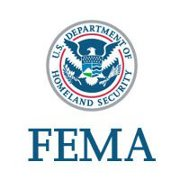Medicare Part D, Pharmacy Access During a Federal Disaster

 If a Presidential major disaster or emergency declaration is issued or the Secretary declares a public health emergency, and the underlying circumstances are reasonably expected to result in a disruption in access to covered Part D drugs, CMS expects sponsors to lift their "refill-too-soon" edits. Part D sponsors may exercise some operational discretion as to how these edits are lifted during a disaster or emergency as long as access to Part D drugs is provided at the point-of-sale. For instance, Part D sponsors could implement an edit that is readily resolvable at the point-of-sale through the use of a pharmacist override code. CMS also expects Part D sponsors to allow an affected enrollee to obtain the maximum extended day supply, if requested and available at the time of refill.
If a Presidential major disaster or emergency declaration is issued or the Secretary declares a public health emergency, and the underlying circumstances are reasonably expected to result in a disruption in access to covered Part D drugs, CMS expects sponsors to lift their "refill-too-soon" edits. Part D sponsors may exercise some operational discretion as to how these edits are lifted during a disaster or emergency as long as access to Part D drugs is provided at the point-of-sale. For instance, Part D sponsors could implement an edit that is readily resolvable at the point-of-sale through the use of a pharmacist override code. CMS also expects Part D sponsors to allow an affected enrollee to obtain the maximum extended day supply, if requested and available at the time of refill.
CMS expects that Part D sponsors will continue to lift these edits until the termination of a public health emergency or the end of a declared disaster or emergency. In the case of a public health emergency, it terminates when it no longer exists or upon the expiration of the 90-day period beginning from the initial declaration, whichever occurs first. For major disasters declared by the President, Part D sponsors should pay particular attention to the closure of disaster incident periods listed in the Disaster Federal Register Notice section on Federal Emergency Management Agency's (FEMA's) Web site, noting that in circumstances in which the incident period has not officially closed 30 days from the initial Presidential declaration. Part D sponsors may consider extending the implementation of the edits but are not required to do so. However, if sponsors choose to remove the edits, they need to work closely with enrollees who indicate that they are still displaced or otherwise impacted by the disaster or emergency.
To read the entire memo from CMS regarding Pharmacy and Provider Access during a Federal Disaster or Other Public Health Emergency Declaration please click here.
